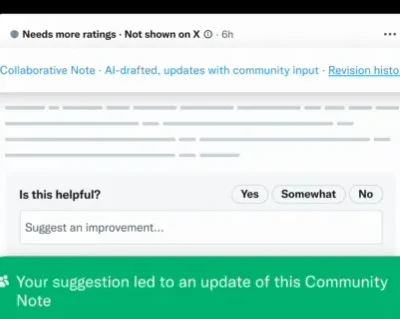TikTok has won another reprieve in the U.S., with a district judge blocking Montana’s effort to ban the app for all users in the state.
Back in May, Montana Governor Greg Gianforte signed legislation to ban TikTok outright from operating in the state, in order to protect residents from alleged intelligence gathering by China. There’s no definitive evidence that TikTok is, or has participated in such, but Gianforte opted to move to a full ban, going further than the government device bans issued in other regions.
As explained by Gianforte at the time:
“The Chinese Communist Party using TikTok to spy on Americans, violate their privacy, and collect their personal, private, and sensitive information is well-documented. Today, Montana takes the most decisive action of any state to protect Montanans’ private data and sensitive personal information from being harvested by the Chinese Communist Party.”
In response, a collection of TikTok users challenged the proposed ban, arguing that it violated their first amendment rights, which led to this latest court challenge, and District Court Judge Donald Molloy’s decision to stop Montana’s ban effort.
Montana’s TikTok ban had been set to go into effect on Jan. 1, 2024.
In issuing a preliminary injunction to stop Montana from imposing a full ban on the app, Molloy said that Montana’s legislation does indeed violate the Constitution and “oversteps state power.”
Molloy’s judgment is primarily centered on the fact that Montana has essentially sought to exercise foreign policy authority in enacting a TikTok ban, which is only enforceable by federal authorities. Molloy also noted that there was a “pervasive undertone of anti-Chinese sentiment” within Montana’s proposed legislation.
TikTok has welcomed the ruling, issuing a brief statement in response:
We are pleased the judge rejected this unconstitutional law and hundreds of thousands of Montanans can continue to express themselves, earn a living, and find community on TikTok.
— TikTok Policy (@TikTokPolicy) December 1, 2023
Montana attorney general, meanwhile, has said that it’s considering next steps to advance its proposed TikTok ban.
The news is a win for TikTok, though the Biden Administration is still weighing a full TikTok ban in the U.S., which may still happen, even though the process has been delayed by legal and legislative challenges.
As I’ve noted previously, my sense here would be that TikTok won’t be banned in the U.S. unless there’s a significant shift in U.S.-China relations, and that relationship is always somewhat tense, and volatile to a degree.
If the U.S. government has new reason to be concerned, it may well move to ban the app. But doing so would be a significant step, and would prompt further response from the C.C.P.
Which is why I suspect that the U.S. government won’t act, unless it feels that it has to. And right now, there’s no clear impetus to implement a ban, and stop a Chinese-owned company from operating in the region, purely because of its origin.
Which is the real crux of the issue here. A TikTok ban is not just banning a social media company, it’s blocking cross-border commerce, because the company is owned by China, which will remain the logic unless clear evidence arises that TikTok has been used as a vector for gathering information on U.S. citizens.
Banning a Chinese-owned app because it is Chinese-owned is a statement, beyond concerns about a social app, and the U.S. is right to tread carefully in considering how such a move might impact other industries.
So right now, TikTok is not going to be banned, in Montana, or anywhere else in the U.S. But that could still change, very quickly.




